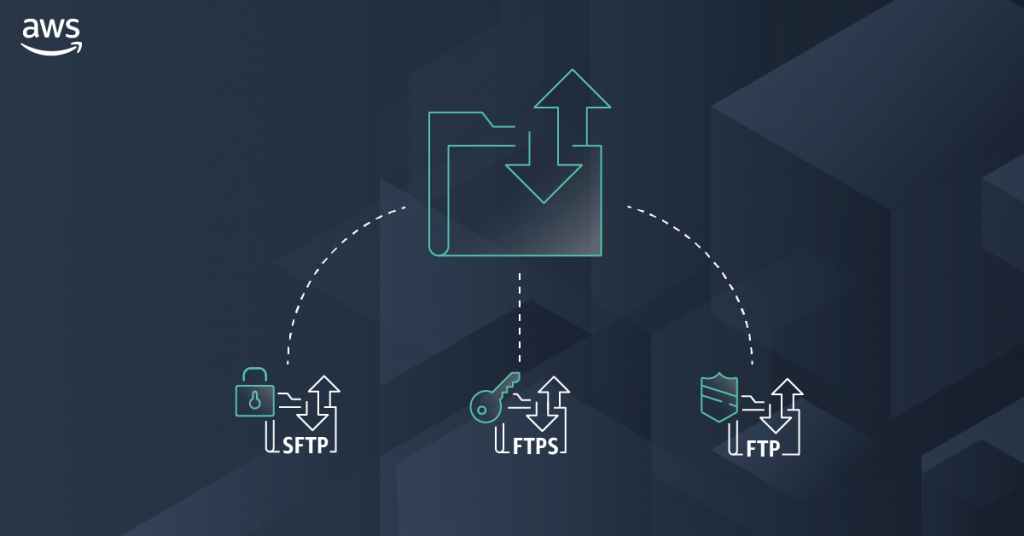AWS Storage Blog
Category: Application Services
Automating AWS Backup pre- and post-script execution with AWS Step Functions
Customers execute custom scripts before or after a backup job to automate and orchestrate required and repetitive tasks. For example, customers running applications hosted in Amazon Elastic Compute Cloud (EC2) instances use scripts to complete application transactions, flush the buffers and caches, stop file I/O operations, or ensure that the application is idle, bringing the […]
Troubleshooting automated pre- and post-scripts for AWS Backup
Customers can use event-driven architectures with decoupled tasks to automate and orchestrate custom scripts for backup jobs. With event-driven architectures, troubleshooting is key to understanding failures at the component levels in order to resolve issues that arise and keep the entire automated workflow running smoothly. In the first post in this two-part blog series, we […]
Authenticating to AWS Transfer Family with Azure Active Directory and AWS Lambda
Note (5/11/2023): The sample solution provided in this blog post does not support Multi-Factor Authentication (MFA) with Azure Active Directory. Managing users at scale across multiple systems can become a time-intensive process, adding undue burden to system administrators. User management is increasingly complex when customers operate file transfer workloads that share data across different internal […]
Automating disaster recovery of Amazon RDS and Amazon EC2 instances
Complex environments can sometimes feel like they require complex disaster recovery (DR) solutions, which usually consist of multiple DR offerings from different vendors that may not interact with each other. There are many ways to build a DR solution in the cloud. Luckily, with AWS, you can easily configure multiple DR services and orchestrate them […]
Analytical processing of millions of cell images using Amazon EFS and Amazon S3
Analytical workloads such as batch processing, high performance computing, or machine learning inference often have high IOPS and low latency requirements but operate at irregular intervals on subsets of large datasets. Typically, data is manually copied between storage tiers in preparation of processing, which can be cumbersome and error-prone. Given this, IT teams want to […]
Creating a scalable disaster recovery plan with AWS Elastic Disaster Recovery
IT disruptions can occur for many reasons, including human error, weather, or a cyber attack. Enterprises need to have a solution in place that will get them up and running quickly with minimal downtime. When orchestrating disaster recovery at scale, it is important to automate recovery plans as much as possible. This allows for a […]
How GE’s Avio Aero deploys Microsoft SharePoint using AWS Storage solutions
SharePoint is the source of truth for the unstructured data needs of many businesses. Keeping it available, while offering the best performance possible at the most cost-effective price, is critical to ensuring that different parts of an organization can work together. At GE’s Avio Aero, our SharePoint deployment hosts business-critical data from our Finance, Sourcing, […]
Securing AWS Transfer Family with AWS Web Application Firewall and Amazon API Gateway
AWS Transfer Family is a fully managed, serverless file transfer service for Amazon S3 and Amazon EFS. The service provides you with the flexibility to authenticate your file transfer client users using credentials stored in an identity provider (IdP) of your choice. You can achieve this by integrating an Amazon API Gateway endpoint backed by an AWS Lambda function that […]
OpenGamma improves security and reduces overhead using AWS Transfer Family
OpenGamma provides hosted analytics services to derivative-trading firms in the financial services industry. These firms often face the challenge of adapting to new regulatory standards. Since 2008, new regulation has aimed to improve global financial stability by increasing the requirements on firms to post margin in order to protect against default and systemic failure. As […]
Querying data without servers or databases using Amazon S3 Select
UPDATE (7/25/2024): Use Amazon Athena, S3 Object Lambda, or client-side filtering to query your data in Amazon S3. Learn more » In our time as Solutions Architects at AWS, we have supported all types of customers and use cases. We regularly hear the same feedback: instead of deploying and managing systems and infrastructure, customers want […]





